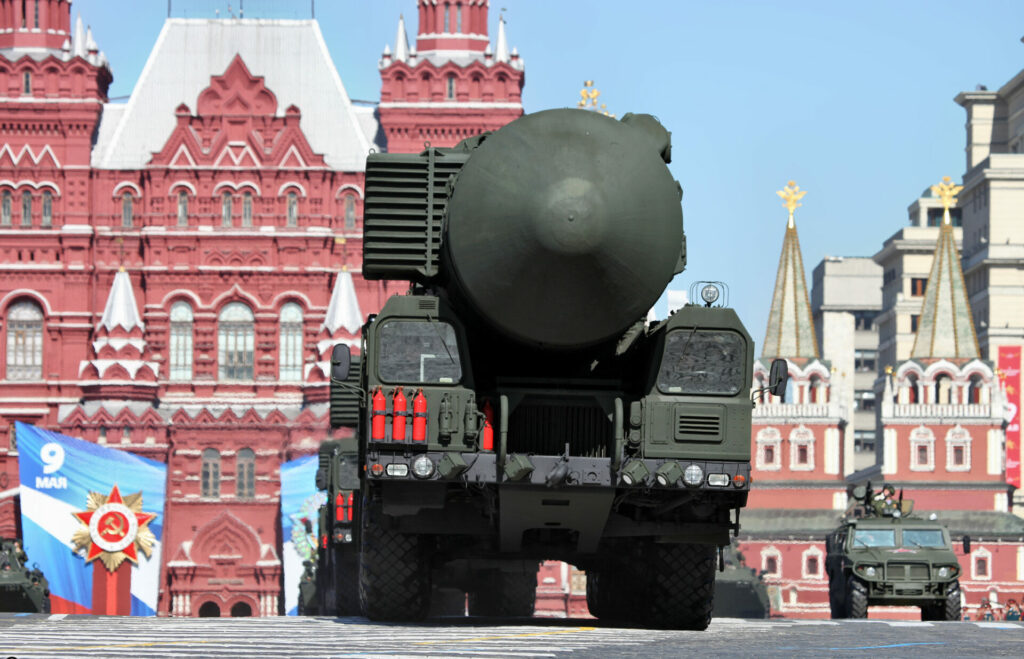Russia carried out a test launch of an "advanced" intercontinental ballistic missile (ICBM) on Tuesday, just weeks after President Vladimir Putin suspended his country's participation in the New Start Treaty – the last remaining nuclear treaty between Russia and the US.
"The launch tested the advanced combat equipment of intercontinental ballistic missiles," the Russian Defence Ministry stated on its official website.
The Defence Ministry added that the missile was launched from the Kapustin Yar rocket complex, located roughly 100 kilometres east of Volgograd. It was reported to have hit a "mock target" at the Sary Shagan test site in Kazakhstan, almost 3000 kilometres away.
"The launch confirmed the correctness of the design of the circuits and the technical solutions used in the development of new strategic missile systems," the Defence Ministry noted. "The launch tasks have been completed in full."
The Ministry did not specify the type of ICBM used although many analysts suspect that it was a version of the RS-28 Sarmat (or "Satan 2") missile. The 35-metre rocket is capable of carrying up to ten nuclear warheads and can travel at speeds of up to 25,000 kilometres per hour. If launched from Moscow, the missile could reach Brussels in less than six minutes.
Escalating tensions
The latest missile test is another instance of Moscow stepping up nuclear tensions between Russia and the West since launching its full-scale invasion of Ukraine in February last year.
In addition to putting participation in the New Start Treaty on hold — a decision condemned as "completely reckless and unacceptable" by the International Campaign to Abolish Nuclear Weapons (ICAN) — Putin also recently announced that Russia will deploy "tactical" (or short-range, low-yield) nuclear weapons in Belarus, its close ally.
Shortly after Putin's announcement, Belarusian President Alexander Lukashenko affirmed that he is prepared to welcome Russian "strategic" nuclear missiles (or ICBMs) on his country's territory: "Putin and I will decide whether to bring strategic weapons here, if necessary," Lukashenko said during his State of the Nation Address earlier this month.
The dictator referred to Western opponents of Putin as "scoundrels abroad" and accused them of "trying to blow us up from the inside and from the outside."
Related News
- Lukashenko ready to accept Russian strategic nukes in Belarus
- 'Completely reckless': Anti-nuke group condemns Putin's decision to suspend nuclear treaty
In December Putin explicitly refused to rule out Russia's first use of nuclear weapons in the event of a full-scale war with the West. In October, he also personally oversaw Russia's annual nuclear exercises which involved, according to Defence Minister Sergei Shoigu, preparation for a "massive nuclear strike by [Russia's] strategic nuclear forces" on Western territory.
In a speech delivered on the eve of the invasion last year, Putin openly threatened "those who may be tempted to interfere" in Russia's efforts to subjugate Ukraine with "consequences such as you have never seen in your entire history". Several days later, he put Russia's nuclear forces on "special alert", alarming numerous Western nuclear experts.

